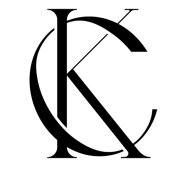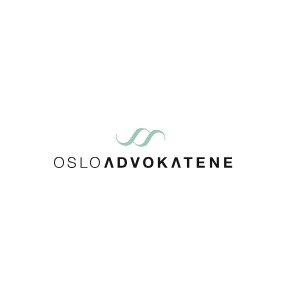Best International Trade Law Lawyers in Oslo
Share your needs with us, get contacted by law firms.
Free. Takes 2 min.
List of the best lawyers in Oslo, Norway
About International Trade Law in Oslo, Norway
International Trade Law in Oslo, Norway, governs the rules and customs for handling trade between countries. As one of the leading economies in Scandinavia, Norway plays a significant role in international trade, particularly in areas like oil, seafood, and shipping. The legal framework in Oslo is designed to facilitate trade while ensuring compliance with international agreements and protecting domestic interests. The Norwegian legal system supports a robust regulatory environment to handle trade activities effectively, aligning with both European Union directives and global standards initiated by the World Trade Organization (WTO).
Why You May Need a Lawyer
There are several common situations where seeking legal advice in International Trade Law may be beneficial:
- Import and Export Compliance: Navigating the complex regulations surrounding tariffs, customs duties, and trade restrictions.
- Contract Negotiations: Drafting, reviewing, or negotiating international trade agreements or contracts can be intricate and requires expert guidance.
- Trade Disputes: Resolving conflicts that may arise from trade partnerships or breaches of contract.
- Intellectual Property: Protecting trademarks and designs when entering new markets.
- Sanctions and Embargos: Understanding the implications of international sanctions for trade operations.
Local Laws Overview
Several key aspects of local laws are particularly relevant to International Trade Law in Oslo:
- Customs Act: Governs the rules regarding the import and export of goods, including duties and taxes.
- Norwegian Competition Act: Addresses anti-competitive practices and ensures fair competition in the market.
- Intellectual Property Legislation: Protects inventions, trademarks, and copyrights in the international market.
- International Agreements: Norway is part of several international trade agreements that impact local businesses, such as EFTA and EEA.
Frequently Asked Questions
What are the main bodies governing international trade in Norway?
In Norway, international trade is governed by several bodies including the Norwegian Ministry of Trade, Industry and Fisheries, and customs authorities.
How do customs regulations affect international trade?
Customs regulations control the import and export processes, ensuring compliance with tariffs, taxes, and customs duties prevalent at the national and international level.
What is the impact of the EEA on Norway’s trade laws?
The European Economic Area (EEA) agreement extends the EU Single Market to Norway, aligning Norway's trade laws with EU standards but allowing Norway to retain certain trade sovereignty.
How can trade disputes be resolved in Norway?
Trade disputes can be resolved through negotiation, arbitration, or litigation, with arbitration often being the preferred method due to its international enforceability.
Are there any restrictions on exporting goods from Norway?
Yes, there can be restrictions, particularly for strategic goods, dual-use items, and goods under international sanctions.
What are the penalties for non-compliance with trade regulations?
Penalties can vary from fines and confiscation of goods to revocation of trade licenses and, in cases of severe breach, imprisonment.
How does Norway handle international sanctions?
Norway complies with United Nations and European Union sanctions, implementing these through national legislation.
Can foreign businesses freely trade in Norway?
Yes, foreign businesses can engage in trade in Norway, but they must comply with Norwegian and international trade laws.
Is there support for businesses expanding internationally?
Norway offers various forms of support for businesses looking to trade internationally, including guidance from Innovation Norway and trade missions.
What role do digital services and e-commerce play in international trade law?
Digital services and e-commerce are increasingly significant, with specific laws and regulations overseeing data exchange, consumer protection, and online transactions.
Additional Resources
Here are some resources that can be helpful for someone seeking legal advice in International Trade Law in Oslo:
- Norwegian Ministry of Trade, Industry and Fisheries: Provides comprehensive information on trade policy and regulations.
- Innovation Norway: Offers support and guidance for businesses expanding internationally.
- Norwegian Bar Association: Can help you find qualified legal professionals specializing in International Trade Law.
- Norwegian Customs Agency: Offers detailed guidance on customs regulations and documentation.
Next Steps
If you need legal assistance in International Trade Law, consider the following steps:
- Conduct initial research to understand the aspect of trade law you need help with.
- Contact local law firms in Oslo that specialize in International Trade Law to explore consultation options.
- Prepare all necessary documentation and information related to your trade activities or concerns.
- Get in touch with professional organizations such as the Norwegian Bar Association to find recommended legal experts.
- Attend trade seminars or workshops that may offer insights into navigating the legal landscape.
Taking these steps will help ensure you receive the appropriate legal advice tailored to your specific trade law needs in Oslo.
Lawzana helps you find the best lawyers and law firms in Oslo through a curated and pre-screened list of qualified legal professionals. Our platform offers rankings and detailed profiles of attorneys and law firms, allowing you to compare based on practice areas, including International Trade Law, experience, and client feedback.
Each profile includes a description of the firm's areas of practice, client reviews, team members and partners, year of establishment, spoken languages, office locations, contact information, social media presence, and any published articles or resources. Most firms on our platform speak English and are experienced in both local and international legal matters.
Get a quote from top-rated law firms in Oslo, Norway — quickly, securely, and without unnecessary hassle.
Disclaimer:
The information provided on this page is for general informational purposes only and does not constitute legal advice. While we strive to ensure the accuracy and relevance of the content, legal information may change over time, and interpretations of the law can vary. You should always consult with a qualified legal professional for advice specific to your situation.
We disclaim all liability for actions taken or not taken based on the content of this page. If you believe any information is incorrect or outdated, please contact us, and we will review and update it where appropriate.
















